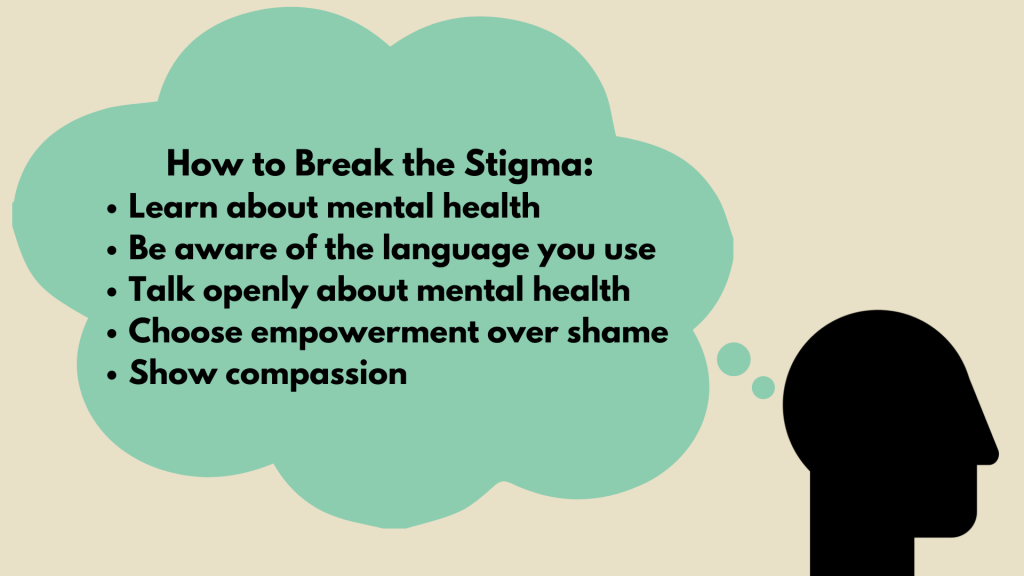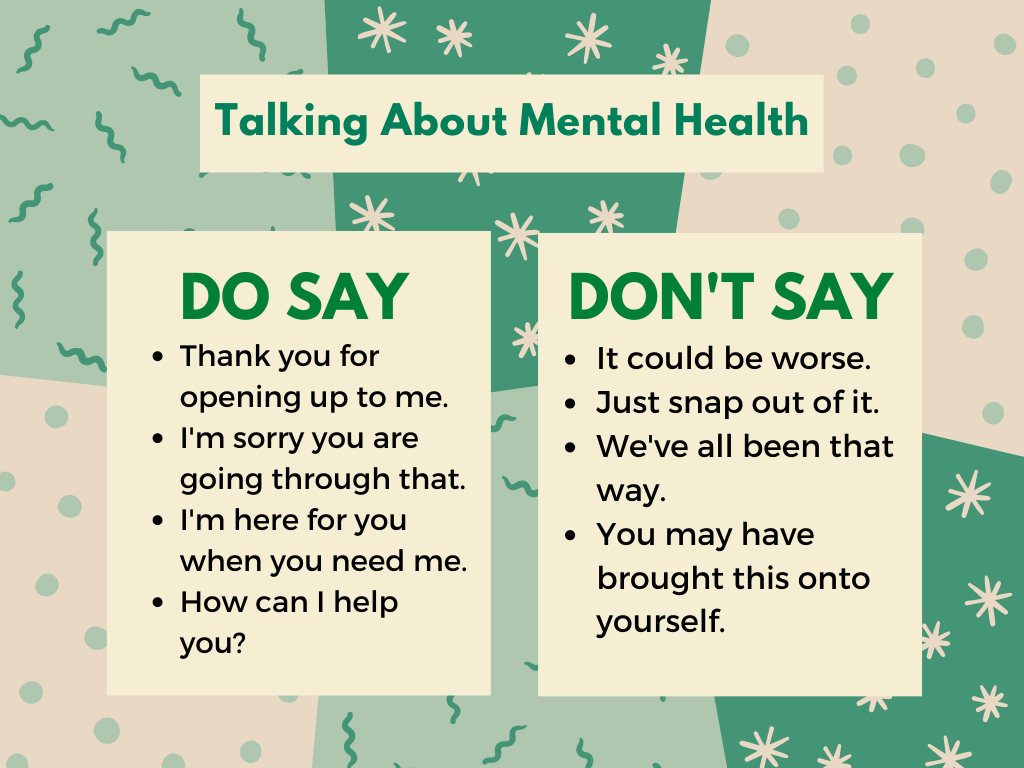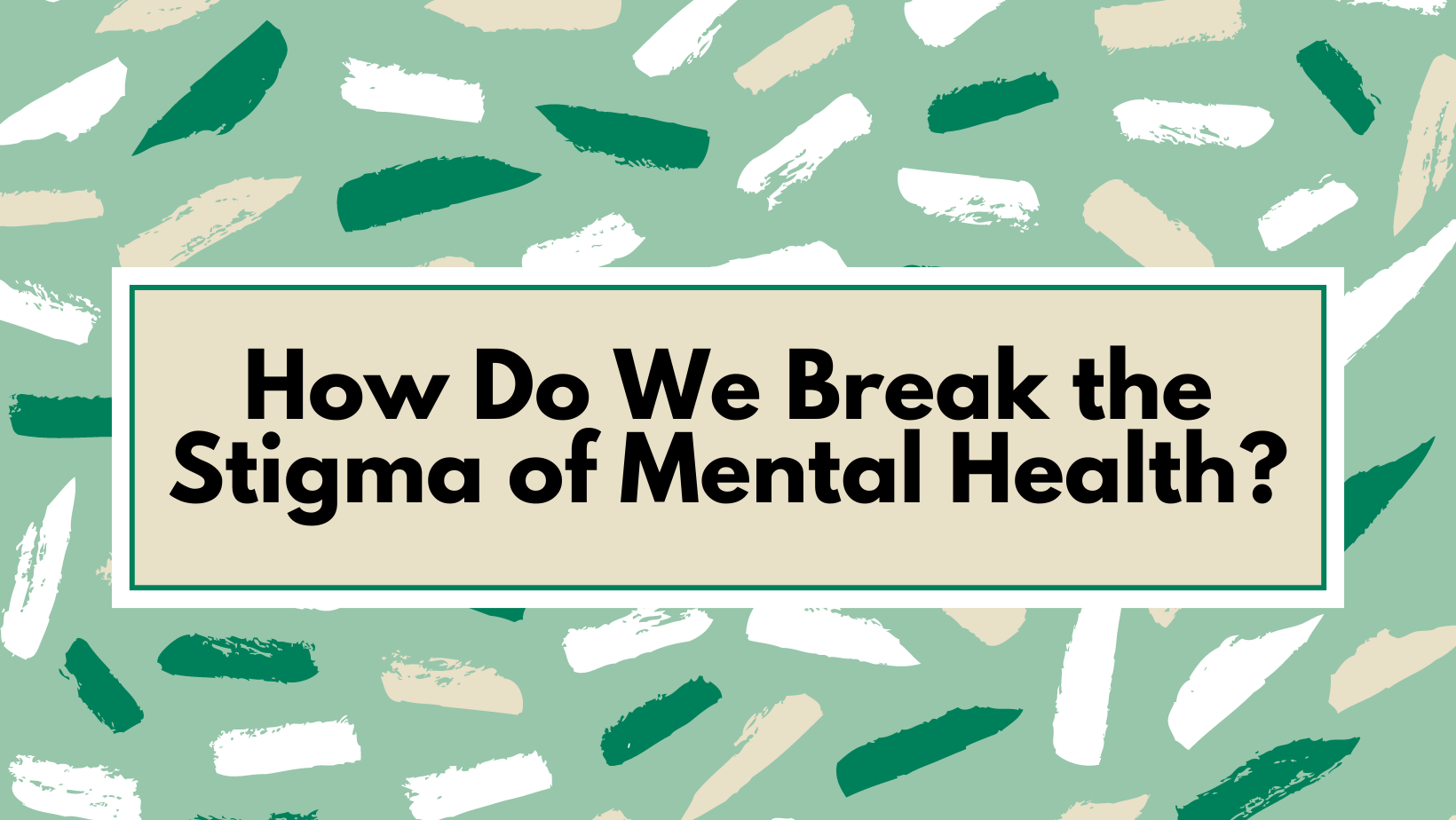Whether you are trying to break the stigma for yourself, a significant other, a family member, a friend, or really anyone you know, there are many resources to help. Mental health is something that affects all of us and we need to work together to break down stigma and support each other.
Here are some ways to help fight mental health stigma for yourself and others.

1. Learn About Mental Health
Since it affects everyone, it is important to understand mental health to a degree. Learning about mental health helps you understand what you’re experiencing and relate to others. Everyone has the right to take care of their mental health.
To learn more about mental health:
To learn more about stigma and how to break it:
2. Be Aware of the Language You Use
Words matter! The way we speak affects those around us. Choosing your words with others in mind is considerate and creates respect between those communicating. Bias-free language allows for others to feel more comfortable opening up and talking about what they’re feeling. If someone opens up to you about their mental health, be respective and supportive; they’re coming to you because they trust you.

3. Talk Openly About Mental Health
Being honest about your mental health helps break down the taboo that mental health must be private and should not be discussed. Talking openly about mental health not only includes how you’re feeling and your experiences, but also if you receive treatment. If you are comfortable, allow people to ask you questions. Being open and honest helps you become more comfortable with yourself, and it can also encourage others to be open and honest so they can help themselves.
4. Choose Empowerment Over Shame
Stigma often dictates how one feels about themself and their mental health. Shame is one of the most common feelings caused by stigma. However, if when talking about mental health a person feels supported and understood, then they are empowered to remain confident in their sense of self and take the steps they need to seek treatment that fits their issues. The process of empowerment reduces shame.
To choose empowerment over shame, work to understand those with mental health issues and support their feelings and treatment journey. Also, at the individual level, this means challenging self-stigma. Remember that stigma towards mental health does not reflect any internal fault.
5. Show Compassion
Most of the time, when we’re feeling down, we want some form of comfort or support. With mental health, it can be a struggle to remember you are worthy of care and support; this is why compassion is so important. Being there for others reminds them they are not alone, that they are loved, and have people who care for them. Also, treat others you don’t know personally with respect and dignity. You never know what someone is going through and that simple act of kindness may make someone’s day.
It is also important to show compassion for yourself. Because of self-stigma, many feel unworthy of taking care of themselves. Remind yourself that your mental health is not a character flaw, but a combination of different circumstances. Reach out when you feel like you need help. And sometimes the best thing you can do is take a minute to breathe.

